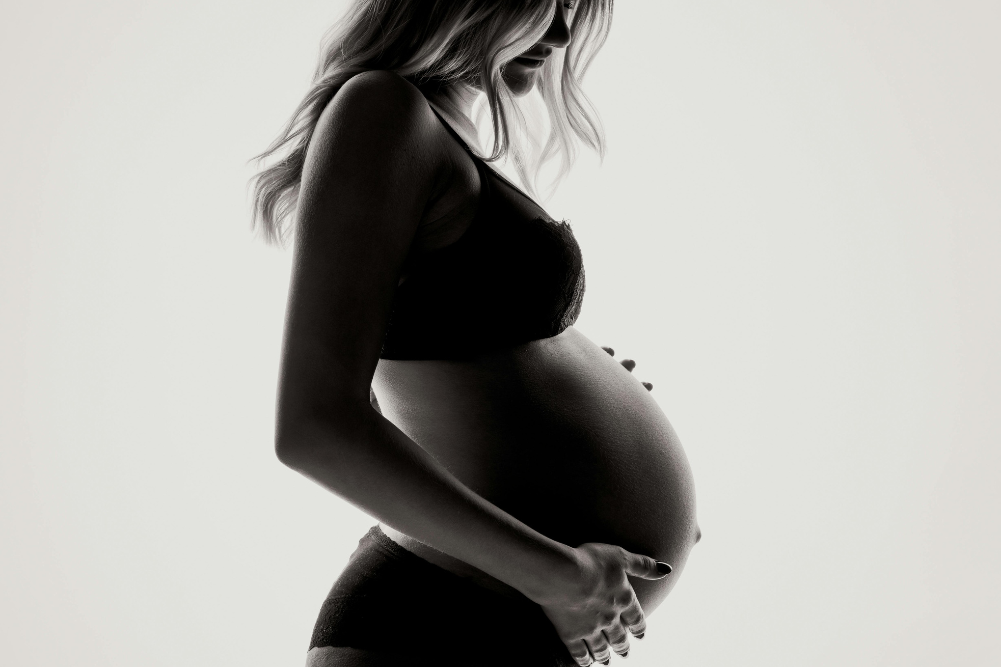How to lose weight the holistic way
Trying to lose weight, for many people, can be as elusive as it is frustrating. The weight-loss industry is saturated with special diets and supplements that claim they’ll help you drop kilos in months, and extreme detox diets promising to have you shedding excess weight in days.
However, according to naturopath and nutritionist Alison Cassar, many of these fad diets fail because they are either not sustainable or there is an underlying health issue that isn’t being addressed. “Many people haven’t been investigated properly to see if there is a physical reason for the weight issue. For others, it may be a lack of the right information about what to actually eat and how to exercise,” she says.
“Or sometimes it doesn’t matter what they do — there are strong emotional or mental reasons stopping people from being successful or sabotaging them.”
Underlying metabolic or hormonal issues can impact profoundly on efforts to lose weight. These include problems with thyroid, adrenals, insulin resistance, menopause and polycystic ovaries. Then there is poor detoxification and elimination from faulty digestion or bowel issues, allergies and candida.
Second, some people have weight issues that are due to genuine lifestyle factors: overeating, eating the wrong foods, no exercise and an excessive intake of carbohydrates vs output of energy.
Many people have a combination of these issues, says Cassar, and commonly there are mental and emotional reasons for excess weight. “When someone comes to see me for weight loss, I firstly determine if they are having difficulty losing weight, if they are actually gaining unjustified weight or both. This gives me clues as to what’s going on.”
She adds, “Then I ask them to have a series of blood tests that help to determine any underlying causes or nutrient deficiencies. This includes checking thyroid, iron levels, vitamin D and a variety of other nutrients.”
Case taking is very important, according to Cassar, as this gives clues about the potential causes of the weight issues that may not come up in a blood test, such as gut or liver function.
She recommends a bio-impedence test to determine the patient’s current fat and muscle ratio. This helps work out the carbohydrate and protein ratios they should be eating and the type of exercise they should do for the best results.
There is also the emotional weight to consider. Studies show patterns around emotional eating need to be broken to help with weight loss. Cassar uses a technique called EFT (Emotional Freedom Technique) to unpick the emotional and mental issues around weight loss. This can be the turning point for some people who’ve struggled for years to lose weight without success, and can help with cravings and making better food choices.
You can also help your efforts to lose weight or avoid putting it on just by relaxing. Studies show stress is a significant contributor to overweight. Cortisol increases insulin resistance which can impact greatly on weight gain. Getting sufficient beauty sleep is also vital. Sleep is important for the release of human growth hormone and leptin, two hormones that have a profound effect on appetite and weight control. Studies show that sleep deprivation causes us to crave carbs, which raise feel-good hormone, serotonin.
Dealing with underlying health issues is paramount in shifting weight, as is addressing any emotional blockages. However, here are some general food and lifestyle tips that can be helpful.
Probiotics Research shows probiotics may prevent intestinal fat absorption by interfering with calorie absorption during the digestion process. Scientists have discovered that the hormones ghrelin and leptin, which send hunger signals to the brain, don’t function properly when there are inadequate levels of probiotics. Women supplementing with probiotics for one year after giving birth had nearly 25 per cent less stomach fat than women who did not supplement. Eat fermented foods such as kimchi and sauerkraut, which are naturally rich in probiotics.
Fat burners Certain foods help boost metabolism when consumed and require calories just for digestion. This is called dietary-induced thermogenesis. Foods and drinks in this category include:
- Calcium-rich foods such as broccoli. Studies show a correlation between calcium and weight loss: calcium deficiency may cause the release of calcitrol, a hormone that causes us to store fat. Broccoli is also rich in vitamin C, which helps boost calcium absorption.
- Foods containing the compound capsaicin, such as peppers. Studies show these foods help speed up metabolism.
- Coldwater fish. Studies show omega-3 fatty acids in coldwater fish alter the levels of leptin, a hormone that influences whether your body burns calories or stores them as fat.
- Lean protein. Studies show protein may help speed up metabolism and build lean muscle tissue, helping you burn more calories.
- Water. Drink two litres of purified water daily. Water helps flush the body of toxins that may be slowing your metabolism and also suppresses appetite.
- Green tea. It contains a compound called ECGC, which studies show may help boost metabolism.
- Fibre-rich foods such as berries. Fibre helps remove toxins from your system and promotes satiety.
Exercise “Exercise to kickstart the lymphatic system,” suggests Cassar. “Many experts believe a lazy lymphatic system is directly connected to the formation of cellulite because backed-up fluid ‘sticks’ to fat cells.” Bloated tissues also prevent cells from properly absorbing nutrients and oxygen. As the cells become starved of nutrients, intense hunger and cravings will set in. Worse, without adequate oxygen to ignite the metabolic process, fewer calories are burned, producing less energy.
Antioxidant-rich foods These are important to help neutralise the toxins and support the liver’s detox pathways, and stimulate the immune and lymphatic systems.
Reduce exposure to chemicals in your everyday environment In food, personal care products and skincare, high chemical exposure will burden the liver and slow your body’s detoxification pathways. The liver plays a crucial role in fat metabolism and the process of utilising fatty acids.
Snacks throughout the day should contain good fats, protein and fibre, Cassar says. Good options include bliss balls that contain nut, cocoa and dates; hummus made with olive oil and eaten with raw vegetables; and nut butters eaten with raw vegies. If you eat sweets, have them with protein to help regulate blood sugar levels, she adds.
Cassar also suggests eating protein in every meal, especially breakfast. “Eat within half an hour of waking. Starches and complex wholegrains are best added to breakfast and lunch (if you want to eat them at all). For dinner, eat proteins and low-GI vegies or salad.”
Carla Oates is a natural Beauty expert and the author of Feeding Your Skin.







